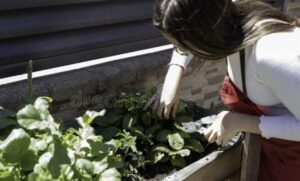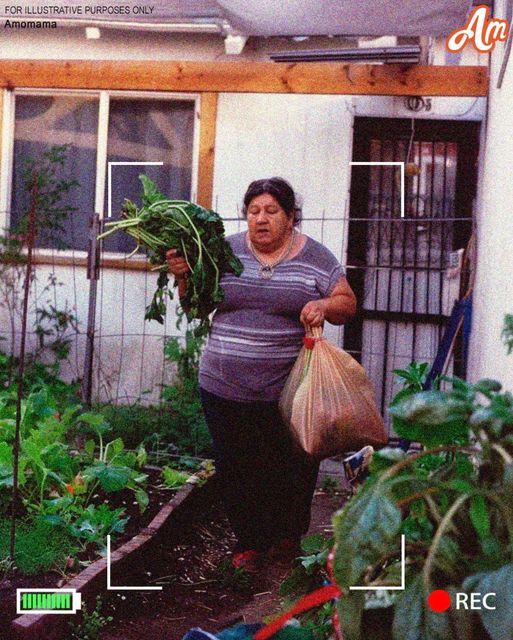My name is Betty, and I’m a 60-year-old widow with a penchant for gardening that some might say rivals even Mother Nature herself. My backyard garden is more than a hobby; it’s my sanctuary, my source of pride, and, quite literally, the fruit of my labor. Every morning, I’d step outside with my coffee in hand, taking a moment to appreciate the little ecosystem I had nurtured.
A bit about my backstory: my life took a sharp turn twelve years ago when my beloved husband, Greg, passed away unexpectedly. Facing the loneliness and vast silence of an empty house, I chose to move in with my daughter Sarah and her family. It was a blessing in disguise. Sarah and her husband, Mark, both held demanding jobs, and I found a new sense of purpose in helping raise my three grandchildren.
We live in a friendly suburban community, a small enclave of 60 homes where everyone knows each other, and life unfolds with a gentle predictability. One day, seeing my longing for the gardens I once tended, Sarah and Mark offered me the use of an empty lot next to their house. “Mom, why don’t you start a garden there? It’d be good for all of us,” Sarah suggested. Her proposal lit a spark in me, and I embraced the project wholeheartedly.
The garden was about more than aesthetics or keeping busy. It became a vital part of our family’s life, providing fresh produce and a place for my grandchildren to connect with nature. Little Lily, especially, took to gardening with enthusiasm. “Grandma, can we make strawberry shortcake with the berries we picked?” she’d often ask, her eyes bright with excitement.

For days, Wilma was inundated with kindness and food from neighbors, each unaware of the real reason behind the initiative but happy to support a fellow neighbor in need. This overwhelming community response brought a profound realization to Wilma about the value of community and honesty.
Finally, Wilma came to my door, her demeanor humbled, her eyes unable to meet mine. “Betty, I’m sorry for taking your produce. It was wrong, and I regret it,” she confessed, her voice choked with emotion.
“It’s alright, Wilma,” I replied, accepting her apology but insisting on a condition. “I appreciate your apology. How about you join me in the garden tomorrow? There’s a lot you could learn, and I could use a helping hand.”
From then on, Wilma became a regular in my garden. She worked diligently, learning the nuances of planting, nurturing, and harvesting—understanding the effort involved in cultivating the food she had once thoughtlessly taken.
This experience not only mended fences but also transformed Wilma into a gardener herself. Inspired by her lessons, she started her own garden, applying the skills she had learned. Our relationship evolved from one of contention to camaraderie, bonded by the soil of the earth we both cherished.
The theft of my vegetables turned into a powerful community-building experience, demonstrating the strength of compassion over conflict and the importance of addressing wrongdoing with a heart geared toward rehabilitation rather than retribution.
In the end, the community grew stronger, and I regained not only my peace of mind but also gained a friend and fellow gardening enthusiast in Wilma. This ordeal reminded me and my neighbors of the importance of understanding, forgiveness, and the powerful bond of community spirit.
